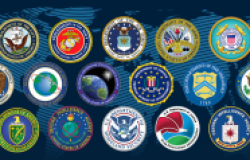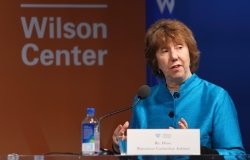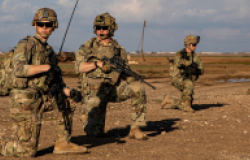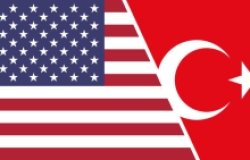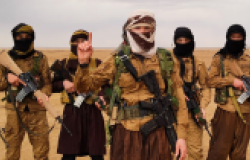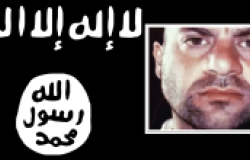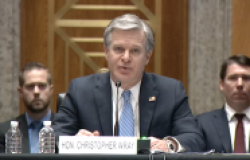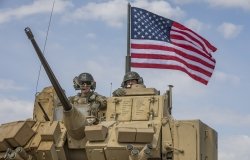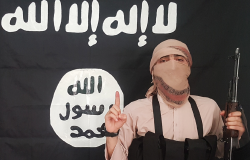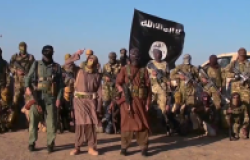From Sinjar to Paris and Back
Successes in the campaign against IS in Iraq and Syria are creating opportunities for the United States to shift the momentum of the conflict.
At just the time when Kurdish forces, together with the U.S. Air Force, were scoring some of the first successes in Iraq against the Islamic State, IS, by capturing the mountain and town of Sinjar, IS members launched a deadly attack in Paris. The two events were only temporally connected; the Paris assailants had been set into motion well before the Sinjar fighting had commenced. But they were both probably linked in that both were intended to influence the G-20 Summit beginning in the southern Turkish town of Antalya.
More importantly, these two events herald the beginning of significant changes in both strategy and dynamics for the U.S.-led, loosely organized coalition forces as well as IS. As such, they are bound to influence and play off of each other. First, the Kurdish-American conquest of Sinjar was clearly designed to strengthen President Obama’s hand as he traveled to the G-20, where he would be confronting a Russian President Putin brimming with his diplomatic and military interventions in Syria. Second, the conquest of Sinjar also demonstrated to all that the Islamic State is not an undefeatable colossus; it is vulnerable to organized combined offensives. In fact, this is what the American aim has been for some time, and why Washington was so insistent on getting access to the four Turkish airbases in southern Turkey not far from the IS frontlines.
The Islamic State continues to occupy large swaths of Iraqi and Syrian territory, including Iraq’s third largest city, Mosul, and its Syrian capital, Raqqa. Liberating these areas is not going to be easy, but the Sinjar operation shifts the narrative and momentum away from IS. Further gains would certainly hasten its demise. The psychological dimension of the fight is as important as actual successes on the ground, especially when it comes to solidifying the anti-IS coalition. As it turns out, not only are there deep fissures among the actual forces on the ground, but the complexity of regional politics—a politics that includes the Iraqi government, Turkey, the Saudis, Qataris, Iranians, and now the Russians—makes for a very treacherous decision-making environment. Even the Kurds are divided among themselves as Iraqi Kurds under Turkish tutelage face off with their Syrian and Turkish counterparts as they battle the common enemy.
To date the U.S. has tried to contain IS and expressed a wish to defeat it, but it has lacked a medium-term strategy for implementing this goal. On the implementation side, it knows what it doesn’t want but not what it wants. It has mostly improvised—sometimes smartly, such as in the case of its alliance with the Syrian Kurdish group, the PYD, in October 2014 to relieve the IS siege on the town of Kobani, and then in extending the fight to liberate Syrian territory from the Islamist Caliphate. Although the PYD has proven to be the only effective force fighting IS in Syria, this has not gone beyond an improvised policy, as the Turks have vehemently resisted the U.S. partnership with the PYD, to the point of trying to block ammunition resupplies (to say nothing of actual arms deliveries).
This is where the Paris bombings will prove to be a wake up call. The Islamic State has been trying to expand its reach (witness its affiliates in the Sinai, Libya, various parts of Africa, and now even in Afghanistan) and types of activities (bombings in Turkey, downing of a Russian airliner, and now Paris). IS, with its well-choreographed media campaign aimed at enemies and would-be supporters, is in the business of dominating the narrative and the psychological battlespace. By conducting a spectacular attack in Paris, IS clearly wanted to show that it is powerful enough to influence, if not dominate, the G-20 agenda.
The Paris attacks were not lone wolf events; they were far too well planned, and a clear demonstration of the Islamic State’s capabilities. Every major European city and beyond is therefore vulnerable. Just like 9/11, the Islamists exploited the weaknesses in the system. The only way to prevent similar attacks is to massively increase the pressure on the organization by putting it on the defensive, disrupting its communication networks, forcing it to fight for its life every day, and thereby take away its ability to plan such attacks.
The carnage in Paris and the Sinjar exploits, together with earlier gains in Syria, serve both to help focus the Obama Administration on coming up with a plan to defeat IS but also to strengthen its arguments against the naysayers and recalcitrant actors who have provided it with plenty of excuses to act gingerly. Washington will now have the undivided support of all Europeans; it needs to parlay this increased support and the changed circumstances to articulate a strategy and impose it on its allies in the region for their own and the greater good. Improvisation will no longer work; the Obama Administration will have to communicate to the Turks, Iraqis, Saudis, and others that there is a price to be paid for not cooperating. The days of vetoing policies are over. All of these countries, including the Iranians and Russians, need something from the United States and Europe.
Paris and Sinjar can shift the momentum to the U.S. side, but only if it decides to take it. Seizing the moment will require a very serious organizational, financial, and political effort that will consume much of the remainder of the President’s term. What of the Syrian strongman Bashar al-Assad, who, after all, is at the root of the problem? Let’s face it: There is only so much bandwidth the world can handle at the moment, and defeating the Islamic State will also improve the conditions for regime change in Syria.
This article originall appeared in the American Interest. Read it here.
About the Author


Middle East Program
The Wilson Center’s Middle East Program serves as a crucial resource for the policymaking community and beyond, providing analyses and research that helps inform US foreign policymaking, stimulates public debate, and expands knowledge about issues in the wider Middle East and North Africa (MENA) region. Read more
